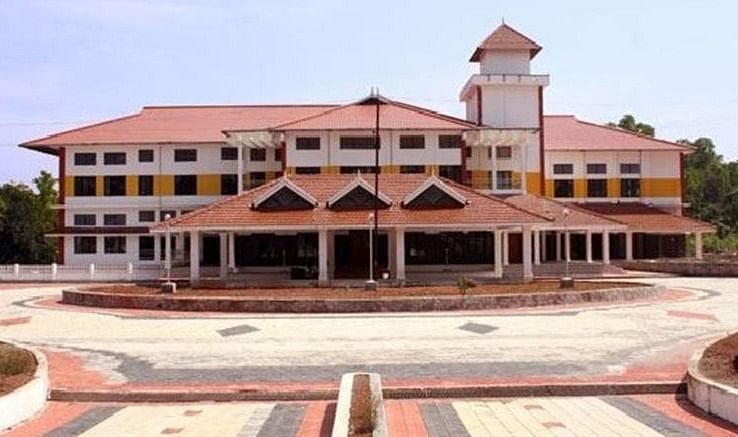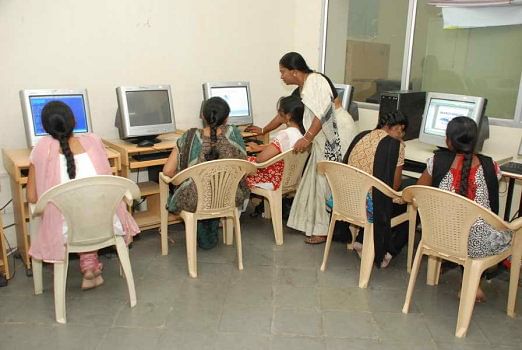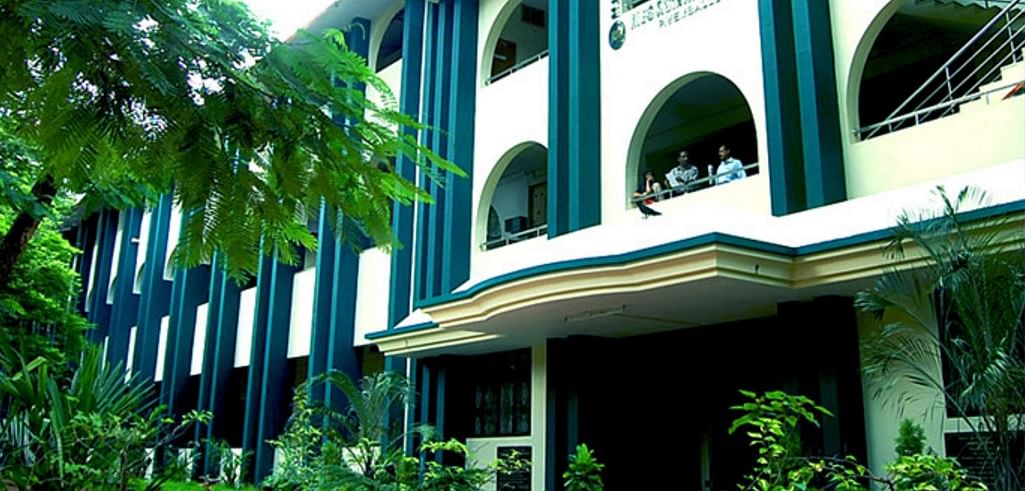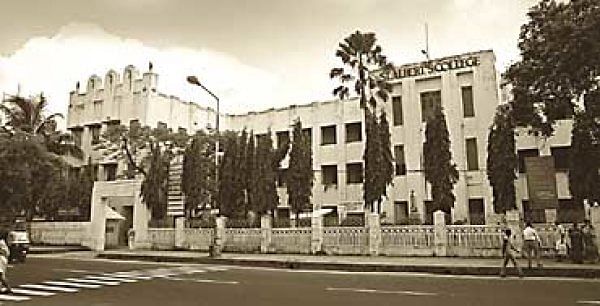B.Sc Aquaculture: Course Details, Eligibility, Admission, Fees

B.Sc Aquaculture is a three-year undergraduate programme that deals with the science of aquatic life, which includes fish and the production, management, health, and other elements of aquatic life. It is a thorough examination of the available kinds of aquaculture, with some biology and biochemistry. B.Sc Aquaculture jobs include Aquaculture Consultant, Associate Research Scientist, Assistant Technical Manager, and Relationship Manager in Marine Product Export Development Authority.
Table of Contents
- About B.Sc Aquaculture
- Eligibility Criteria for B.Sc Aquaculture
- How To Get Admission for B.Sc Aquaculture?
- Who Should Pursue a B.Sc Aquaculture?
- Types of B.Sc Aquaculture
- Popular Entrance Exams for B.Sc Aquaculture
- Study B.Sc Aquaculture in India
- Top 10 B.Sc Aquaculture Colleges in India
- Study B.Sc Aquaculture Abroad
- Fee Structure for B.Sc Aquaculture
- Syllabus and Subjects for B.Sc Aquaculture
- Why Choose B.Sc Aquaculture?
- B.Sc Aquaculture Course Comparison
- Preparation Tips for B.Sc Aquaculture
- Scope For Higher Education
- Salary of a B.Sc AquacultureGraduate
- Career Options After B.Sc Aquaculture Course
- Skills That Make You The Best B.Sc Aquaculture Graduate
B.Sc Aquaculture Course Details
| Degree | Bachelors |
| Full Form | Bachelor of Science in Aquaculture |
| Duration | 3 Years |
| Age | 17 years and above |
| Subjects Required | Physics, Chemistry, Biology are compulsory subjects in 10+2 exam |
| Minimum Percentage | 10+2 examination from a recognized board with minimum 70% marks in Physics, Chemistry, Biology (PCB) |
| Average Fees | ₹5K - 5 LPA |
| Average Salary | INR 3.5 - 6 LPA |
| Employment Roles | Associate Research Scientist, Aquaculture Consultant, Aquaculture Technician, Aquaculturist |
About B.Sc Aquaculture
According to Wikipedia, "Aquaculture is the controlled cultivation ("farming") of aquatic organisms such as fish, crustaceans, mollusks, algae and other organisms of value such as aquatic plants." Thus, B.Sc Aquaculture is the scientific study of marine organisms.
The B.Sc course strives to combine a strong natural science foundation with practical and managerial issues, an awareness of health and safety issues, and business and communication expertise. It is more than just fish farming; it is an applied science at the highest functional level.
The primary purpose of this course is to provide a thorough grasp of marine life to the candidate. From a scientific standpoint, knowledge about numerous aspects of aquatic life is presented.
Eligibility Criteria for B.Sc Aquaculture
Students must be aware of the B.Sc Aquaculture eligibility criteria and all course specifics to get admission to the programme. Candidates must have passed their 10+2 exams with at least 70% in the science stream-Physics Chemistry Biology (PCB) from a recognized board to be eligible for the programme.
B.Sc Aquaculture age limit is 18-23 years. Aspirants satisfying the above criteria are eligible for admissions or to appear in B.Sc Aquaculture entrance exams.
How To Get Admission for B.Sc Aquaculture?
When students pursue a B.Sc undergraduate programme, the admission process does not differ much based on the specialization. The B.Sc Aquaculture admission process is purely dependent on the candidate's ability to meet the eligibility criteria.
The aspirant's admission to the B.Sc Aquaculture programme under the merit quota is based on their performance in the common entrance examinations and their 10+2 grades in the PCB subjects.
Here are the steps that one should generally go through to get admission.
How to Apply?
Check on the university's or college's official website and complete the registration process for admission. Register for the entrance tests by filling out the application form (if any). Wait for an email, text message, or phone call from the college to inform the aspirants.
Selection Process
Colleges choose students based on their eligibility and merit. The college creates a merit list of students who have satisfied the criteria and are eligible for admission to the B.Sc Aquaculture programme.
Read More on B.Sc Admission
Who Should Pursue a B.Sc Aquaculture?
The B.Sc Aquaculture course is for those aspirants who want to set up a career in science. Aspirants who wish to work in firms such as marine exporters, marine consultants, aqua-farming, and educational research firms are a good fit for this course.
When to do B.Sc Aquaculture?
Typically, it makes sense for B.Sc Aquaculture aspirants to apply for the course immediately after completing 10+2. However, students from only the science stream with PCB subjects can apply for a B.Sc Aquaculture course.
Types of B.Sc Aquaculture
B.Sc. courses are in high demand in India. Students can choose from several courses. One of these courses is a B.Sc Aquaculture programme. It is available as a full-time B.Sc Aquaculture, part-time B.Sc Aquaculture, and distance B.Sc Aquaculture programme.
Full-Time B.Sc Aquaculture
This full-fledged on-campus degree programme equips students with all of the knowledge and abilities required for a specific stream or subject. Full-time B.Sc Aquaculture degree programmes are provided at many universities across India.
Part-Time B.Sc Aquaculture
B.Sc Aquaculture is a program that undergoes continuous assessment and follows a practical approach. It is thus not offered as a part-time educational course.
Distance B.Sc Aquaculture
A distance B.Sc Aquaculture graduation course is not offered in India, but a diploma course is offered by a few universities, including IGNOU, for aspirants who wish to learn about aquaculture.
Popular Entrance Exams for B.Sc Aquaculture
The entrance exam for the B.Sc Aquaculture course takes the form of an online written test. Several universities are linked with several national and state-level entrance examinations. Apart from national-level examinations, certain universities offer a university-level exam for the admission procedure.
The exam questions are general and heavily emphasize high school principles. B.Sc Aquaculture admissions are granted depending on the student's examination results and the university's cutoff.
The following are some of the most popular B.Sc admission exams:
A Quick Glance at the B.Sc Aquaculture Entrance Exams
Entrance exams play an integral role in the admission process for selecting the aspirant. Thus, it is important to understand the pattern and the structure of the entrance exam. Following are some important points to keep in mind while preparing for the B.Sc Aquaculture entrance exams:
- The entrance exams are conducted in the online mode.
- The entrance exams are conducted on the national and state levels, depending on the university the aspirant wishes to apply to.
- Entrance exams are MCQ based, consisting of various sections including Physics, Chemistry, Biology, Aptitude, General Awareness, etc.
- The duration of the entrance exam is 3 hours.
Study B.Sc Aquaculture in India
India is home to some of the best B.Sc universities in the world. Aspirants have many options to choose from according to their 10+2 scores and entrance exam performance.
Top 10 B.Sc Aquaculture Colleges in India
Below is the list of the 10 best B.Sc Aquaculture Colleges in the country:
| Sl.No. | Name of the College |
| 1 | Mahatma Phule Krishi Vidyapeeth, Pune |
| 2 | Tamil Nadu Agricultural University, Coimbatore |
| 3 | Mahatma Jyoti Rao Phoole University, Jaipur |
| 4 | Punjab Agricultural University, Ludhiana |
| 5 | SHUATS, Allahabad |
| 6 | Andhra University, Visakhapatnam |
| 7 | Central Institute of Fisheries Education, Mumbai |
| 8 | BU Bhopal |
| 9 | Gandhi P R College, Bhopal |
| 10 | S.S.L. Jain P.G. College, Vidhisha |
Top B.Sc Aquaculture Colleges in New Delhi
India's capital city is home to some of the best institutions for B.Sc Aquaculture. Check the table below for the top B.Sc Aquaculture colleges in New Delhi:
| Sl.No. | Institution |
| 1 | St. Stephen’s College |
| 2 | Deen Dayal Upadhyaya College |
| 3 | Gargi College |
| 4 | Ramjas College |
| 5 | ANDC New Delhi |
Top B.Sc Aquaculture Colleges in Pune
Pune also has some of the best institutions for B.Sc Aquaculture in India. Check the table below for the top B.Sc Aquaculture colleges in Pune:
| Sl.No. | Institution |
| 1 | Fergusson College |
| 2 | BVDU |
| 3 | ACSC |
| 4 | Mahatma Phule Krishi Vidyapeeth |
| 5 | FLAME University |
Top B.Sc Aquaculture Colleges in Bangalore
The capital city of Karnataka is renowned around the country for colleges offering top B.Sc Aquaculture programmes. Check the table below for the best B.Sc Aquaculture colleges in Bangalore:
| Sl.No. | Institution |
| 1 | IISc Bangalore |
| 2 | Mount Carmel College |
| 3 | Acharya Institute of Graduate Studies |
| 4 | Oxford College of Science |
| 5 | Christ University |
Top B.Sc Aquaculture Colleges in Hyderabad
The Telangana state capital has some premier institutions in the country for B.Sc Aquaculture courses in India. Check the table below for the top B.Sc Aquaculture colleges in Hyderabad:
| Sl.No. | Institution |
| 1 | Nizam College |
| 2 | AV College |
| 3 | MANUU |
| 4 | University of Hyderabad |
| 5 | NMIMS |
Top B.Sc Aquaculture Colleges in Kolkata
West Bengal’s capital city, Kolkata, has some of the best colleges for B.Sc Aquaculture courses in India. Check the table below for the best B.Sc Aquaculture colleges in Kolkata:
| Sl.No | Institution |
| 1 | St. Xavier’s College |
| 2 | Lady Brabourne College |
| 3 | Ramakrishna Mission Residential College |
| 4 | Eastern Institute For Integrated Learning In Management |
| 5 | Ramakrishna Mission Vivekananda Centenary College Rahara |
Top B.Sc Aquaculture Government Colleges
There are several top Government Colleges offering quality B.Sc Aquaculture programmes across the country. Check the table below for the top B.Sc Aquaculture government colleges in India:
| Sl.No. | Institution |
| 1 | Punjab Agricultural University |
| 2 | Andhra University |
| 3 | Mahatma Phule Krishi Vidyapeeth |
| 4 | University of Hyderabad |
| 5 | BU Bhopal |
Top B.Sc Aquaculture Private Colleges
India has seen significant growth in the number of quality B.Sc Aquaculture private colleges that offer some of the best programmes in the country. Check the table below for the top B.Sc Aquaculture private colleges in India:
| Sl.No. | Institution |
| 1 | St. Xavier’s College, Kolkata |
| 2 | Nizam College, Hyderabad |
| 3 | St. Stephen College, Delhi |
| 4 | S.S.L. Jain P.G. College, Vidhisha |
| 5 | Gandhi P R College, Bhopal |
Study B.Sc Aquaculture Abroad
If they can afford it, students can study a B.Sc Aquaculture course abroad. Depending on the degree, college, and region, a B.Sc Aquaculture course overseas can last up to four years.
Some of the benefits of doing a B.Sc Aquaculture course overseas include access to some of the greatest resources, facilities, and faculties and global exposure in terms of subject matter and diverse cultures. The following are some of the best B.Sc Aquaculture colleges in the world, along with their fees:
Top B.Sc Aquaculture Colleges Abroad
The table below contains the list of the some of the best colleges abroad for B.Sc Aquaculture:
| Institution | Fees |
| Stanford University | USD 17,500 |
| Auburn University | USD 32,760 |
| Louisiana State University | USD 28700 |
| University of Tasmania | USD 28,235 |
| James Cook University | USD 68,555 |
| University of Cambridge, UK | GBP 25,887.60 |
| University of Oxford, UK | GBP 33,501 |
| Harvard University | USD 46,865 |
| Murray State University | USD 13,920 |
Top B.Sc Aquaculture Colleges in the USA
The USA is home to some of the best universities and colleges offering top-notch B.Sc Aquaculture programmes globally. The table below contains the list of top B.Sc Aquaculture colleges in the USA:
| Sl.No. | Institution |
| 1 | Harvard University |
| 2 | New York University |
| 3 | Auburn University |
| 4 | Stanford University |
| 5 | Murray State University |
Top B.Sc Aquaculture Colleges in the UK
The UK has institutions that date back to the 13th century. This makes the UK one of the best destinations for pursuing a B.Sc Aquaculture. The table below shows the top colleges in the UK for B.Sc Aquaculture:
| Sl.No. | Institution |
| 1 | University of Oxford |
| 2 | University of Cambridge |
| 3 | Imperial College London |
| 4 | University of Greenwich |
Top B.Sc Aquaculture Colleges in Canada
Known as the ‘Great White North’, Canada is one of the most sought-after destinations for B.Sc Aquaculture programmes in the world:
| Sl.No. | Institution |
| 1 | University of Toronto |
| 2 | Wilfrid Laurier University |
| 3 | St. Francis Xavier University |
| 4 | University of Montreal |
Top B.Sc Aquaculture Colleges in Australia
Known as the 'Land Down Under', Australia has emerged as one of many students' top destinations for higher studies. The list of top B.Sc Aquaculture colleges in Australia is as follows:
| Sl.No. | Institution |
| 1 | University of Melbourne |
| 2 | University of Tasmania |
| 3 | University of Sydney |
| 4 | University of Adelaide |
| 5 | Deakin University |
Fee Structure for B.Sc Aquaculture
The B.Sc Aquaculture course fees are not fixed and are determined by various criteria. Location, faculty, demand, infrastructure, and the amenities available to students are all factors that influence B.Sc Aquaculture fees. In India, the typical B.Sc Aquaculture course fee is between INR 5000 and 5 LPA.
| Sl.No. | Name of the College | Total Fee Structure |
| 1. | Acharya Ng Ranga Agricultural University | INR 15,000 PA |
| 2. | Mahatma Jyoti Rao Phoole University | INR 55,000 PA |
| 3. | Sam Higginbottom Institute Of Agriculture Technology and Sciences | INR 70,000 PA |
| 4. | Punjab Agricultural University | INR 80,000 PA |
Syllabus and Subjects for B.Sc Aquaculture
The curriculum and syllabi for some of the most popular B.Sc Aquaculture courses are more or less the same. With a few minor variations, most colleges across the country follow the core of the syllabus. The following are some of the subjects that students can study:
- Invertebrate & Protochordate Biology
- Biochemistry for Aquaculture I
- Vertebrate Biology
- Biochemistry for Aquaculture II
- Computational and Analytical methods in Aquaculture I
- An Introduction to Genera; Biology and Physiology of Cultivable species
- Postharvest Technology
- Freshwater Aquaculture
- Microbial Biotechnology
Read More: B.Sc Aquaculture Syllabus and Subject
Why Choose B.Sc Aquaculture?
Students should examine B.Sc Aquaculture course specifics before enrolling in the B.Sc Aquaculture degree to ensure they are aware of their enrolled course. "What is B.Sc Aquaculture?" and "Why B.Sc Aquaculture?" are two often asked questions by students. We can make understanding the answers to these questions easier by dividing them down into three short questions:
What is B.Sc Aquaculture All About?
The B.Sc Aquaculture course curriculum covers various topics, including zoology, biochemistry, and botany of all aquatic species. The B.Sc Aquaculture programme covers many scientific topics, including nature, health issues, harvesting, and commercialization of aquatic life and its flora and fauna.
What Does a B.Sc Aquaculture Graduate Do?
After completing a B.Sc in Aquaculture, graduates have various options for their future. Students can work at the Indian National Center for Ocean and Information Services (INCOIS) in Hyderabad, the MPEDA, the EIA, the Coastal Aquaculture Authority of India (CAA), and the National Institute of Oceanography (NIO).
B.Sc Aquaculture students learn about the scientific facts about aquatic life concerning health issues, harvesting, production, marketing, and other aspects. The B.Sc Aquaculture graduate can play one job role as a Technical Aquaculture Analyst.
Technical Aquaculture Analyst: The analyst's primary responsibility is to provide high-quality technical service to clients and colleagues with extensive aquaculture knowledge. They also do customer counselling and sales team collaboration, and recirculating aquaculture systems.
They're also in charge of onsite shrimp farm production optimization, which includes gathering field data, analyzing it, reporting it, making recommendations, and following up. They also participate in on-stage and off-stage workshops and conferences and prepare, implement, and evaluate benchmark trials.
Reasons Why B.Sc Aquaculture Can Fetch You a Rewarding Career?
The B.Sc Aquaculture programme offers a thought-provoking and interesting educational path. Aspirants can determine the inherent value of a B.Sc Aquaculture course because it provides unique career options than any other stream. As a result, the B.Sc Aquaculture work scope is always expanding and interesting.
Diversity in Job roles: Graduates of this programme can choose from various job opportunities. Students can pursue a wide range of jobs in their professions because the field is not that developed yet, and very few people are aware of the opportunities available in aquaculture.
Read More: B.Sc Aquaculture Jobs & Scope
B.Sc Aquaculture Course Comparison
The B.Sc Aquaculture falls under the purview of the B.Sc course and mainly deals with the study, management, culturing and preservation of marine animals. There are other B.Sc courses that deal with the science and study of animals and plants.
B.Sc Aquaculture vs B.Sc Agriculture
The table below showcases the differences between B.Sc Aquaculture and B.Sc Agriculture:
| Course | B.Sc Aquaculture | B.Sc Agriculture |
| Full Form | Bachelor of Science in aquaculture | Bachelor of Science in agriculture |
| Stream | Science | Science |
| Course Duration | 3 years | 3 years |
| Eligibility | 10+2 examination from a recognized board with minimum 70% marks in PCB | 10+2 examination from a recognized board |
| Entrance Exams | NEST, UPSEE, TS EAMCET, NPAT | NEST, UPSEE, TS EAMCET, NPAT, LPUSAT |
| Top Colleges | Mahatma Phule Krishi Vidyapeeth, Tamil Nadu Agricultural University, Mahatma Jyoti Rao Phoole University | Punjab Agricultural University, Andhra Agricultural University, Tamil Nadu Agricultural University |
| Fees | INR 5000 to 5 LPA | INR 7000 to 40000 PA |
Read More: B.Sc Agriculture
Preparation Tips for B.Sc Aquaculture
Mentioned below are some important tips that the aspirants can follow for pursuing the B.Sc Aquaculture course:
Purposeful practice: Students must extensively practice the concepts during the exam period to succeed in this course.
Deep Topic Knowledge: Glancing over the course's subject line is a crucial step in preparing for the course.
Books and articles to read: References to research books and articles and reading the textbook are required for the B.Sc Aquaculture course on practical subjects.
Scope For Higher Education
Students can pursue many different courses after B.Sc Aquaculture. There are also many higher study options available for graduate students after a B.Sc Aquaculture degree, which can help them better understand the subject domain.
Also, the students can pursue a career in research if they are interested in it. They also can get hired by the Coastal Aquaculture Authority of India (CAA) and the National Institute of Oceanography (NIO).
The other higher education options that the B.Sc Aquaculture graduates can opt for are:
Salary of a B.Sc AquacultureGraduate
B.Sc graduates with a specialization in Aquaculture are very rare to find since not many people are aware of this course, and hence there are a lot of opportunities available to the graduates offering various roles and responsibilities.
B.Sc Aquaculture graduates are considered skilled professionals in the domain of aquaculture. B.Sc Aquaculture Salary ranges from INR 3.5-10 LPA on average. (Source: Glassdoor)
Read More: B.Sc Aquaculture Salary
Career Options After B.Sc Aquaculture Course
Graduates can use the knowledge gained during the graduation course in aquaculture in marine businesses to provide a real-time solution to the issues faced by the customers and the organization. This stream is important in such a business and can assist in achieving the objectives and goals.
With time, this stream is getting established as a source of getting appropriate information about aqua-farming and marine analysis. After earning a B.Sc degree in Aquaculture, One might be able to work in one of the following positions:
- Associate Research Scientist
- Aquaculture Consultant
- Aquaculture Technician
- Aquaculturist
Skills That Make You The Best B.Sc Aquaculture Graduate
To be successful in their employment, B.Sc Aquaculture graduates must have a wide range of knowledge about aquaculture. These aren't necessarily abilities that students can learn in a classroom. Instead, these are talents that aspirants can only acquire via practice. As a result, students should attempt to step outside of their comfort zone and get as much experience as possible. Among these skills are:
- Patience and perseverance
- Flexibility
- Skills in science and mathematics
- A logical and self-contained mentality
- Good analytical abilities
- Exceptional accuracy and meticulous attention to detail
- Interpersonal and teamwork skills






















